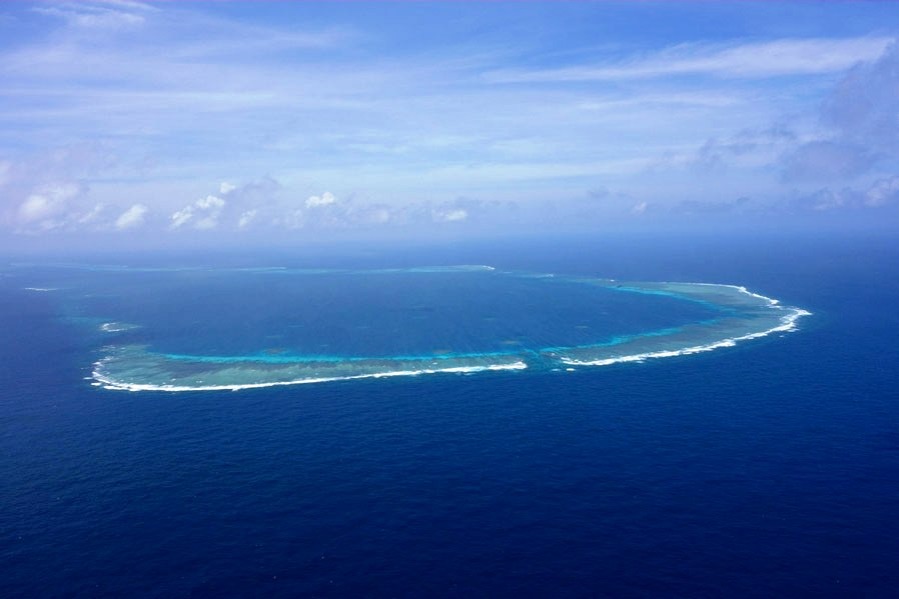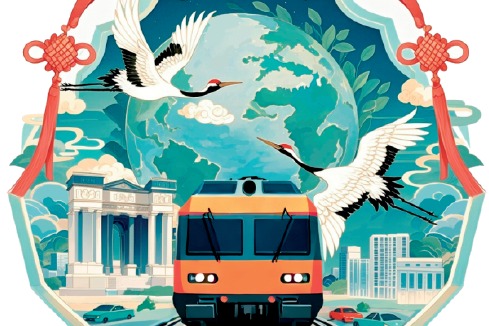Modernizing the Global South


China's leadership has always based its policy and its relations with the developing world on the principle of solidarity, mutual benefits and the promotion of win-win cooperation
Editor's note: The world has undergone many changes and shocks in recent years. Enhanced dialogue between scholars from China and overseas is needed to build mutual understanding on many problems the world faces. For this purpose, the China Watch Institute of China Daily and the National Institute for Global Strategy, Chinese Academy of Social Sciences, jointly present this special column: The Global Strategic Dialogue, in which experts from China and abroad will offer insightful views, analysis and fresh perspectives on long-term strategic issues of global importance.
The socioeconomic development of the Global South is in the interest of all mankind. It can become a major contributor to the welfare of the whole world. This is not recognized universally and as a result two approaches have emerged toward advancing progress in the Global South.
The first approach is correlated to the attitude of the United States and the former colonial powers in Europe toward the Global South. Their position is to try to take control of the resources of the Global South to enrich the multinational corporations and to develop their own societies.
After World War II, at Bretton Woods they created organizations such as the International Monetary Fund and the World Bank to control the developing countries. The bodies established then are very formidable to this day. The control of these organizations is firmly in the hands of the US and some of its allies in Europe. Countries are made to accept economic programs dictated by those banks.
All the programs are geared to create favorable conditions for the exploitation of the developing countries' natural resources and the exploitation of cheap labor.
As a result, the developing countries are actually net exporters of capital to the developed countries. In a paper published in the journal New Political Economy, it is estimated that the scale of the drain through the unequal exchange from the Global South to the Global North was some $150 trillion when accounting for their lost growth from 1960 to 2018.
The mechanisms used to extract so much wealth from the Global South include interests on debt, repatriation of profits and unfair trade practices (selling at high prices and buying cheap), among others.
In the meantime, conditions in the Global South are extremely grim. Poverty is extremely high, and people are mostly underemployed or unemployed. Social infrastructures such as education, health and housing are all in a terrible state. This leads to migration and a brain drain.
The physical infrastructure is also in an extremely poor state. Insufficient roads, mostly unpaved, lead to general underdevelopment.
The second approach is the one pursued by the People's Republic of China. The leadership of China has always based its policy and its relations with the developing world on the principle of solidarity, mutual benefits and the promotion of win-win cooperation.
As China has developed, it has shared its prosperity with the rest of the Global South. It has invested in many least-developed countries that could not get loans from the World Bank and the IMF. Many of them were regarded as "credit risks".
Now China has emerged as a very powerful country economically, and it has proposed several revolutionary programs that have captured the imagination of peoples everywhere.
In 2013, President Xi Jinping proposed the Belt and Road Initiative, which is a breathtaking proposal. This initiative connects countries and regions by roads, ports and railways. It entails investments to establish vital infrastructure, which was sorely lacking in the developing countries. The absence of those physical projects was a fundamental reason for the underdevelopment of the Southern Hemisphere. The investments in Belt and Road projects are intended to accelerate economic progress in a very sustainable way.
The scale of the initiative is very exciting. Already more than 150 countries have signed up to be part of this massive modernization push.
The BRI is bringing together peoples everywhere and integrating countries' economies in a way never done before. At the same time, it is contributing to the sovereignty of the various countries, allowing them to participate as equal partners.
While I have tried to show that the Belt and Road projects help promote wealth creation, and it is designed to allow countries to add value to their products and to break out of the vicious cycle of underdevelopment, there is another important consequence of these projects — it brings people closer to each other.
It is apposite at this point to show the qualitative difference between Chinese investments in the Global South as compared with those of the US and European countries.
As pointed out above, the Chinese investments are all oriented to building much-needed infrastructure for the Global South. This promotes economic activities, and encourages added value and sustainable growth. These investments are indispensable for overcoming backwardness.
Western investments in the Global South have always been geared to the exploitation of the natural resources of the countries concerned. In the Caribbean for instance, Guyana, Suriname and Jamaica have been major producers of bauxite for many years, but they still have a long way to become notable aluminium producers. This is largely because the West never developed their energy potential and therefore processing is done by one or more of the imperialist countries.
The same could be said of other minerals such as gold, diamond, manganese, etc. In agriculture, we are mainly producers of raw materials. For example, sugar is still in its raw stage while we import industrial sugar.
It is here that we have to look for the real reason for the "attacks" of the Western powers on China. In order to keep their historical position of exploiter in the Global South, they try to stop China from building win-win cooperation and mutual respect. This is how they hope to keep the Third World poor, heavily indebted and dependent.
Thus, the hostility and slanders toward Chinese partnerships are being intensified.
In order to overcome the mindset of the West, China continues to hold out its hands of friendship and to offer cooperation instead of cutthroat competition.
On March 27, President Xi made a speech at the UNESCO headquarters in Paris. He returned to the theme of a community of shared destiny. He said: "We should encourage different civilizations to respect each other and live in harmony."
So, the difference between the different approaches of China and the West to several global issues is profoundly philosophical.
The Western approach is based on the philosophy of domination and control of the world resources and economies. It pays little or no attention to various cultures and norms. Its goal is to impose its systems and values on all mankind, which leads them to be extremely aggressive, imposing sanctions, blockades and even going to war to get their own way.
The Chinese approach is one of promoting mutual benefits in economies and international trade, respecting cultural differences, seeking to understand each other better and promoting peace and friendship among the various civilizations.
I am convinced that the approach of the Chinese leadership is more viable. This approach will resonate even with some countries in the West who want an environment conducive to doing business.
The struggle to promote the goals set by China will not be easy as there will be resistance from those who crave hegemony and domination. However, the examples are becoming more profound, and masses are breaking away from domination as we see in Asia, Africa and Latin America.
The Global South is finally putting an end to neocolonialism and it is playing a greater role in international relations largely due to the possibilities that have opened up due to China's new approaches to global issues.
The author is former president of Guyana. The author contributed this article to China Watch, a think tank powered by China Daily.
The views do not necessarily reflect those of China Daily.
Contact the editor at [email protected].


































